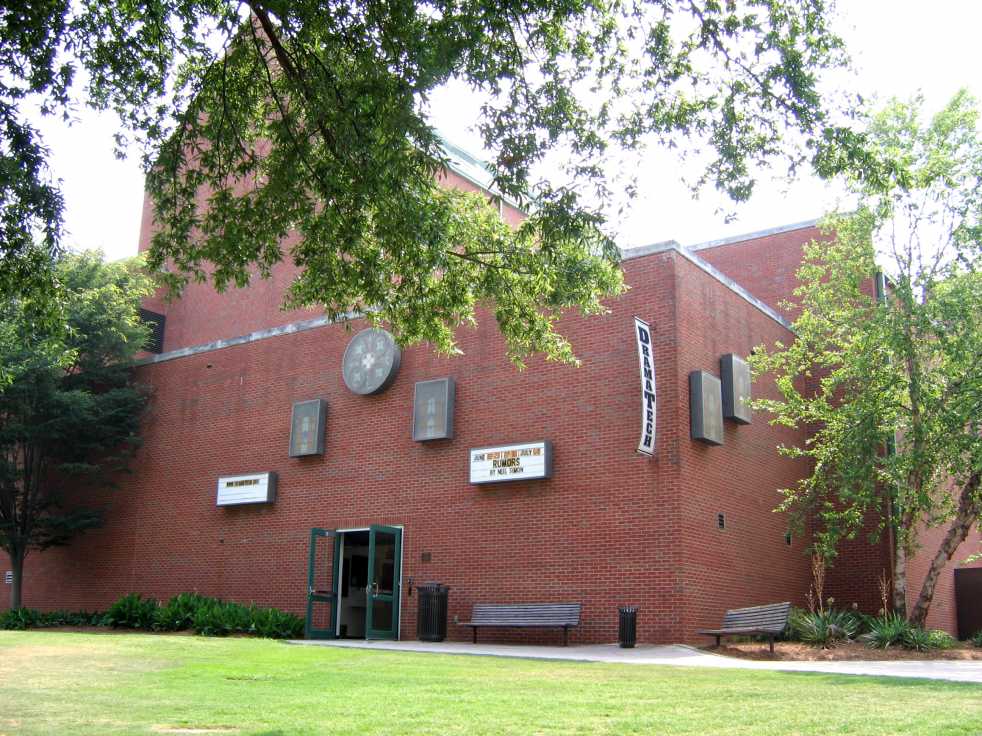DramaTech is about to perform their first full play of 2013, after the quake. The show was adapted to the stage by Frank Galati from a collection of short stories by Haruki Murakami. The play will run Feb. 22-23, Feb. 27-28, and March 1-2; all shows are at 8 p.m.. The Technique recently had the chance to discuss the upcoming show with its director, Melissa Foulger.
What is your background in theater?
I started doing theatre on the hearth of my grandparents’ fireplace at the age of three. From then on, I was hooked. I did my first acting performance in a play in third grade. I was a witch in Shakespeare’s Macbeth. From there, I did theatre throughout high school and then received a BA in Theatre at The George Washington University and an MFA from The University of Memphis. I’ve worked professionally as a stage manager and director both in Washington, DC, Memphis and Atlanta. I currently direct plays around the Atlanta area at professional theatres such as Actor’s Express and the Aurora Theatre in addition to my responsibilities as Artistic Director at DramaTech. I also teach many of the theatre classes through the School of Literature, Media and Communication.
Why choose the play after the quake?
“This play takes an already theatrical novelist and short story author and heightens that even further.”
I have always loved the writing of Haruki Murakami. This play takes an already theatrical novelist and short story author and heightens that even further through the handiwork of Frank Galati, who is known for this narrative style of theatre. I shared this work with Rebecca Rouse who is a Ph.D. candidate in Digital Media and is working specifically with ways to integrate new technology on stage. We decided together that this would be a great show in which to try some new technology.
Because the original work, from which the play is adapted, is by noted Japanese author Haruki Murakami and is set in Japan, were there any cultural boundaries you had to hurtle?
Our biggest issues were trying to make sure we were following Japanese customs and pronouncing the Japanese words right. While these are mostly names and locations, we believe we are as close as we can get.
What is special or different about this production of the play?
This production has two elements of new technology. The first is a suit lined with electroluminescent wire that turns on and off when a certain actor changes between the character of Narrator and Frog. The second is a responsive projection of an expressive line that is controlled by the character of Junpei. Much like a digital puppet, the line comes to life to personify the tension in the story of “Superfrog saves Tokyo.” This is the first time that DramaTech has had the opportunity to work with this kind of technology in a production and it is very exciting for us.
“I am very excited about the use of technology in the production.”
What are you most excited about with this production?
I am very excited about the use of technology in the production, but, more importantly, I am excited to present another quality performance for the Tech community. In addition, we’ve put together a symposium called Performing Technology which will focus on some of the ways cutting edge technology is being used in performance. That event is on February 28 at 2p.m. at DramaTech and brings together researchers from across campus working in this area.
Anything else you would like to add?
DramaTech has a great remainder to its season. We hope everyone will come to our production of after the quake and that they then come back to see our musical How to Succeed in Business Without Really Trying in April and The 39 Steps in July.
